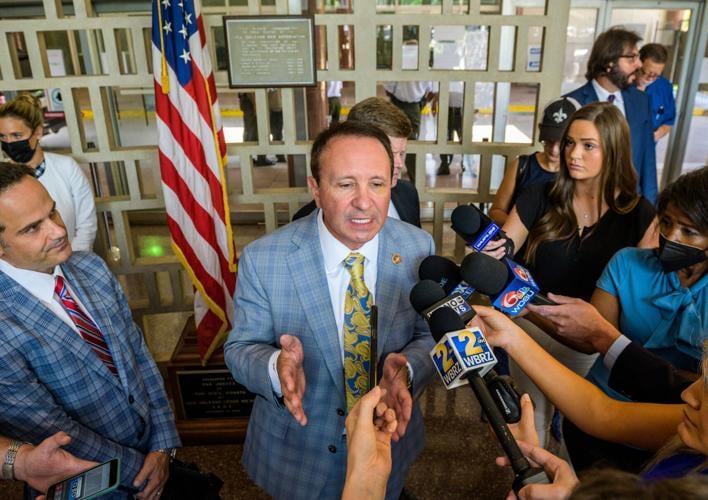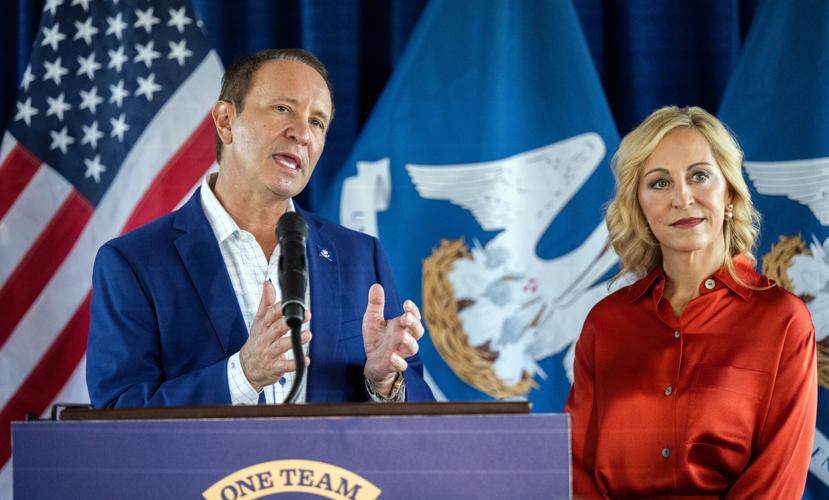When Gov.-elect Jeff Landry announced the composition of his transition committee on New Orleans, he triggered howls of protest because so few Blacks and women made the cut. Many also griped that almost a dozen of the committee's 27 members don't even live in New Orleans.
Those complaints are justified, not just because diversity is a good thing but because Landry missed an opportunity to include voices that could have deepened the committee's discussions about what's ailing the state's most important municipal economic driver.
The governor-elect ran campaign spots with crime victims. He could've appointed a couple of crime victims with personal stories and ideas based on their experiences.
The committee has a number of high-profile business folks, but what might the committee discussions have been like with some neighborhood crime fighters who continue their work no matter who's in public office? Certainly, a sociologist or a psychologist with a crime specialty would have been helpful.
And if the committee's focus is crime, why not — why NOT — add former Interim Police Chief Michelle Woodfork? The first woman to lead the New Orleans Police Department, she had nine good months as the city's top chief and decades of on-the-street crime-fighting credentials.
We now have a crime and economic development committee focused on New Orleans. The question is what they will consider, what efforts will be recommended and what happens before Landry becomes governor in January. He wants to start quickly taking action.
One quick action would be to appoint others with different life and professional experiences and knowledge, to broaden who's working to improve New Orleans — something I'm sure we can agree on.
Landry drew criticism for saying he wanted to see New Orleans "work like the City of Charleston or the City of Nashville."
Geez. I hope that wasn't scripted. That hurt.
But if he meant that he wants New Orleans, which had 265 murders in 2022, to have only 102 murders a year like Nashville that same year, or better yet a mere nine — yes, NINE — murders like Charleston, even Landry's harshest critics wouldn't fault him.
Despite its lack of diversity, the committee can develop ideas that include bringing more resources to the city that drives Louisiana's economy. At a minimum, Landry would be hard-pressed to ignore his own committee's recommendations.
The fact is that our city does have a crime problem, and, more specifically, a violent crime problem.
New Orleans, which is 58.1% Black, has a far more diverse population than either Nashville (27.2% Black) or Charleston (24.3% Black) — and Louisiana's largest city is way poorer than those cities. According to the U.S. Census Bureau, 23.8% of New Orleanians live in poverty, compared to just 14.5% in Nashville and 13.8% in Charleston.
You don't have to be a criminologist to know there's a direct correlation between crime and poverty.
Landry reportedly wants the New Orleans committee to look at economic development, too. That's a good thing — if economic development translates into higher living standards for working people and upward mobility for our poorest citizens. If that happens, it would translate into less crime — particularly less violent crime.
Democratic State Sen. Royce Duplessis of New Orleans knows that. He doesn't align with Republican Landry on a number of issues. But, as one of the committee's four Black members, he sought input from city citizens after he agreed to join. At this stage, he's right to work with Landry to represent real New Orleans voices.
In just one day, Duplessis received about 150 responses. Many of them cited the importance of an improved local economy in the fight against crime.
Duplessis, who has championed legislation to make the criminal justice system fairer and more effective, will no doubt do his best to convince the committee — and the new governor — that you can't reduce crime without increasing living standards and economic opportunities.
Which brings us back to the question of what comes next.
In a very real sense, Landry will own the committee's recommendations. For now, we can only hope that those recommendations aren't pre-ordained.
At a minimum, the incoming governor has sent a signal that he recognizes the importance of New Orleans by dedicating one of his transition councils to the city's top problems.
As for making New Orleans more like Nashville or Charleston, maybe Landry should first consider trying to make Louisiana more like Tennessee or South Carolina.
Or does he think that's a good idea?


















